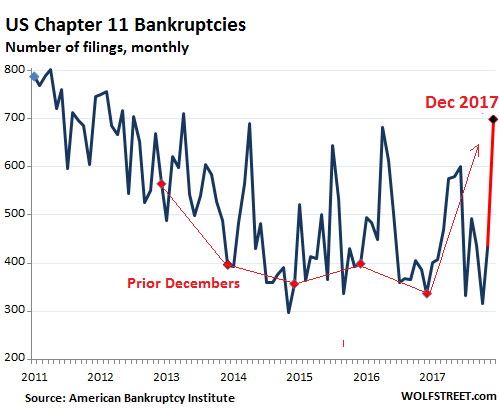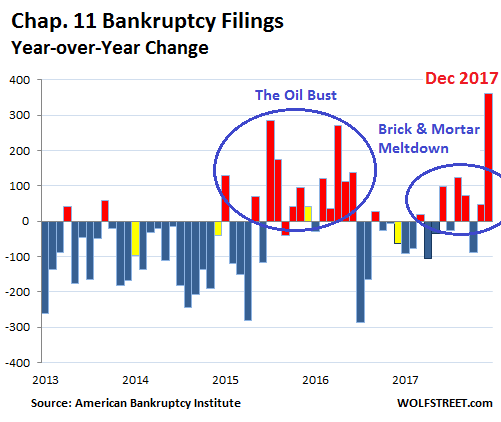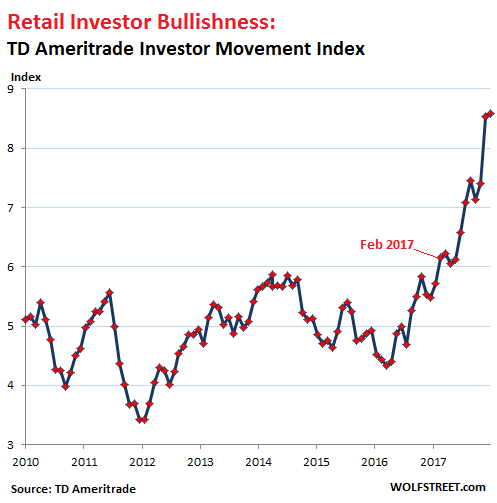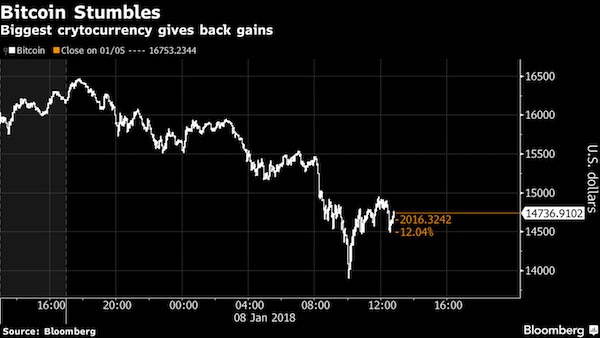
Rembrandt van Rijn Self portrait with Saskia 1636

“It is an automatic procedure, and requests can only be rejected in exceptional cases.”
The lawless are trying to run out the clock on the Spanish probe, because it’s bound to find the CIA’s involvement, and because if Julian, his lawyers and doctors were spied upon, the entire extradition thing may be null and void.
• UK Blocks Spanish Judge From Questioning Julian Assange (El Pais)
The British justice system is blocking a Spanish judge’s request to question Julian Assange in London as a witness in a case exploring allegations that the Spanish security firm Undercover Global S.L. spied on the WikiLeaks founder while he was living in the Ecuadorian embassy in London. The British position, unprecedented in these types of requests for judicial collaboration, is being viewed by Spanish judicial bodies as a show of resistance against the consequences that the case could have on the process to extradite the Australian cyberactivist to the United States.
On September 25, Judge José de la Mata sent British authorities an European Investigation Order (EIO) requesting permission to question Assange by videoconference as a witness in the case opened by Spain’s High Court, the Audiencia Nacional, against the owner of UC Global S. L., David Morales, for alleged offenses involving violations of privacy and client-attorney privileges, as well as misappropriation, bribery, money laundering and criminal possession of weapons. Morales was arrested in September and released on bail. Documents and video footage revealed by EL PAÍS show that UC Global S. L. spied on Assange’s meetings with his lawyers, where his legal defense strategy was discussed. Morales allegedly offered recordings of these and other conversations to US intelligence services.
The EIO is a new tool that speeds up cooperation between judges in the EU and circumvents laborious rogatory letters based on instruments of international law. The mechanism came into effect in Spain in 2018. With an EIO, a legal authority from an EU member state can ask a legal authority from another EU country for assistance in obtaining evidence or means of evidence (witness statements, telephone taps, DNA tests and so on). It is an automatic procedure, and requests can only be rejected in exceptional cases.
[..] On October 14, De la Mata sent the British agency a written reply that EL PAÍS has had access to. In the document, the judge expressed his surprise and referred to the “previous cases” in which the UKCA accepted requests for interviews via videoconference. De la Mata also quoted international cooperation treaties that say that the only obstacle in these cases would be if the person being questioned was the accused. “In this case, Julian Assange is a witness, not an accused party,” wrote De la Mata.
In the document, De la Mata also denied that his initial request was unclear: “We have provided a clear context for our case, describing all the events and crimes under investigation.” On the issue of jurisdiction, he replied: “The Spanish judicial system has jurisdiction and is able to hear cases of crimes committed by Spanish citizens outside of the country as long as the event is a crime in the place where it was committed, the victim or the public prosecutor present a criminal complaint, and the suspect has not been sentenced or acquitted in another country.” De la Mata added that the suspect (David Morales) is Spanish, the victim (Assange) has filed a complaint, and the crimes (unlawful disclosure of secrets and bribery) are crimes in the UK.
War On WikiLeaks: The US government is openly manipulating the judicial proceedings in #Assange's extradition case while Belmarsh prison continues to violate his human rights by denying him the ability to prepare his defense. @WikiLeaks #FreeAssange pic.twitter.com/15m545wR3j
— MintPress News (@MintPressNews) October 24, 2019

“Nancy Pelosi Democrats Produce More Subpoenas Than Laws…”
• Former House Lawyer Says Pelosi’s Impeachment Inquiry ‘Is Illegal’ (WT)
Thanks to a flurry of Ukraine activity, House Speaker Nancy Pelosi and her Democratic majority have approved more subpoenas to investigate President Trump than they have written laws. The subpoena issued Tuesday morning to former Ambassador William Taylor marked the 56th that has been publicly acknowledged and aimed at Mr. Trump and his team. That is 10 more than the 46 House bills that have become law this year. It’s far from a subpoena record, but it is complicating Mrs. Pelosi’s attempt to portray her troops as focused on their agenda. Perhaps more worrying to Mrs. Pelosi’s cause is the conclusion of a former senior oversight attorney for the House, who said the spate of subpoenas issued this month as part of Democrats’ impeachment inquiry is illegal.
Samuel Dewey, a lawyer at McDermott Will & Emery who used to lead investigations for the House Financial Services Committee, said the House Permanent Select Committee on Intelligence, led by Rep. Adam B. Schiff of California, is not authorized under the rules to lead an impeachment probe. “Unless there’s a bunch of stuff that’s not public, which would in itself be extraordinary, there is no way he has jurisdiction to conduct an impeachment inquiry. I think his proceeding is illegal,” Mr. Dewey said. Mr. Schiff’s impeachment inquiry subpoenas have all centered around Mr. Trump’s attempts to rope Ukraine into investigating a potential political opponent, former Vice President Joseph R. Biden. The Washington Times counts 15 publicly acknowledged subpoenas issued on the Ukraine matter so far, including the one Tuesday to Mr. Taylor.
The House also has approved 22 subpoenas related to special counsel Robert Mueller’s investigation into Russian meddling and Trump campaign behavior in 2016, seven subpoenas dealing with the president’s finances, three concerning White House matters such as security clearances or the activities of Trump aide Kellyanne Conway, five subpoenas over immigration policy, three over Mr. Trump’s now-abandoned attempt to ask about citizenship on the 2020 census, and one subpoena to the State Department over U.S. policy in Afghanistan.
[..] Mr. Dewey said Democrats could face a legal challenge over any impeachment-related subpoenas because the House has yet to vote to authorize an inquiry. Mrs. Pelosi created an inquiry by proclamation, turning the reins over to Mr. Schiff. Mr. Nadler, meanwhile, has argued to the courts that he has been in the midst of an inquiry for months. Mr. Dewey said those arguments aren’t frivolous, but “I think they’re wrong.” “I do not think as a matter of law that the Judiciary Committee can exercise the impeachment power without a vote of the full House,” he said. “And I think independently of that, I do not think any other committee can exercise the impeachment power.”

Two big problems:
1) Pelosi needs to solve the legitimacy issue.
2) Democrats are selectively leaking to the press they like, creating a picture that may not be realistic at all
• Democrats Set December Impeachment Target, But Obstacles Abound (R.)
Democratic lawmakers hope to complete their impeachment inquiry into President Donald Trump by year’s end and are coalescing around two articles of impeachment – abuse of power and obstruction, lawmakers and aides told Reuters. But some Democrats fear that a costly distraction may be the looming battle between the Republican Trump and Congress over funding the government when money runs out for many federal operations on Nov. 21, Democratic aides said. Some Democratic lawmakers said they believed they already had gathered enough evidence from the testimony of current and former U.S. officials to impeach Trump for asking Ukraine to investigate a political rival, Joe Biden, a leading contender for the Democratic presidential nomination in 2020.
Other Democrats were more cautious and said more information was needed to solidify the case for impeachment and make it an easier sell to a deeply polarized American public. Only two U.S. presidents have been formally impeached by the House of Representatives, and both were later acquitted by the Senate. Val Demings, a Democratic lawmaker who sits on the House Intelligence and Judiciary committees, said congressional investigators should be able to wrap up their inquiry by December. “We need to be thorough, we need to be methodical, but we need to be timely,” she told Reuters. Three Democratic congressional sources said there had been talk among some Democrats about trying to wrap up hearings and hold an impeachment vote by the Nov. 28 Thanksgiving holiday, but this appeared highly unlikely as of Wednesday.

Why turn the House into a circus?
• Republicans Storm Closed-Door Hearing To Protest Impeachment Inquiry (Hill)
House Republicans stormed a closed-door hearing Wednesday to protest Democrats’ impeachment inquiry process, breaking up the deposition of a top Defense Department official who was testifying about President Trump’s dealings with Ukraine. “They crashed the party,” said Rep. Harley Rouda (D-Calif.), a member of the Oversight and Reform Committee, one of three House panels leading the impeachment probe. Dozens of Republicans, including some members of leadership like House Minority Whip Steve Scalise (R-La.), barged into the secure hearing room in the Capitol basement where Laura Cooper, the deputy assistant secretary of Defense for Russia, Ukraine and Eurasia, was set to provide private testimony.
The deposition got underway after a five-hour delay. Several lawmakers said that, in response to the Republican protest on Wednesday morning, House Intelligence Committee Chairman Adam Schiff (D-Calif.) left the room with Cooper and postponed her interview. “The fact that Adam Schiff won’t even let the press in — you can’t even go in and see what’s going on in that room,” Scalise told reporters outside the hearing room. “Voting members of Congress are being denied access from being able to see what’s happening behind these closed doors, where they’re trying to impeach the president of the United States with a one-sided set of rules, they call the witnesses.”
[..] Some Democrats were outraged by GOP lawmakers bringing cellphones and cameras into a secure room. “In short, they have compromised the security of the room. And they not only brought in their unauthorized devices, they may have brought in the Russian and Chinese with electronics in a secure space,” Rep. Eric Swalwell (D-Calif.) told reporters. Rep. Mark Meadows (R-N.C.), a member of the Oversight Committee and a key Trump supporter, suggested the concerns over the cellphones were overblown. “There’s no cameras or phones in the SCIF, so I think that those phones actually went in, just because everybody went in,” Meadows told reporters. “I can tell you I actually collected phones and brought them back out. You certainly want a secure environment but at the same time I think everybody wants to hear exactly what’s going on.”

“one of the gravest modern offenses against government transparency.”
• Benghazi Coverup Discussed on Emails to Clinton’s Unsecured Server (ET)
Judicial Watch made public on Oct. 21 a 2012 email chain showing multiple senior U.S. State Department executives used then-Secretary of State Hillary Clinton’s unsecured private email to discuss the most sensitive details of the Sept. 11, 2012, terrorist attack on the U.S. Consulate in Benghazi, Libya. Four Americans, including Ambassador Christopher Stevens, died in the assault, which within hours was attributed by the Obama White House to an internet video that critically portrayed Islam and its founder, Mohammed. While Judicial Watch first sought the emails released on Oct. 21 in a 2014 Freedom of Information Act (FOIA) request, they weren’t released to the nonprofit government watchdog until earlier in October by a federal court and only after the group threatened to expand its litigation in the case against the State Department.
It was this FOIA litigation that led to the public disclosure of Clinton’s use of the private email system, according to Judicial Watch. Hundreds of other State Department and White House documents sought in the 2014 suit were previously released, but only after years of litigation and discovery, which continues and may soon include deposing Clinton and Cheryl Mills, her former chief of staff. U.S. District Court Judge Royce C. Lamberth, who has heard much of the Judicial Watch litigation seeking the documents, has called Clinton’s private email system “one of the gravest modern offenses against government transparency.”

Another ghost story.
• Steele, State and the Alfa Bank Conspiracy Theory Exposed (Solomon)
When Russia investigation Special Counsel Robert Mueller finally testified this summer, one of the few substantive revelations he made about something not specifically addressed in his final report involved a long-pedaled allegation that Donald Trump and Vladimir Putin had a secret communications network through a computer server at Russia’s Alfa Bank. “I believe it’s not true,” Mueller testified when questioned by Republican Rep. Will Hurd of Texas, confirming in public what FBI officials had privately told me and other reporters going back to late 2016.
We now have strong evidence that one of the events that gave life to that conspiracy theory was an Oct. 11, 2016 visit by the British intelligence operative Christopher Steele to the State Department, where the author of the now infamous anti-Trump dossier met with Deputy Assistant Secretary of State Kathleen Kavalec. Just a few days after the visit, Kavalec forwarded a document to FBI official Stephen Laycock on Oct. 13, 2016 as a followup to her contact with Steele that offered significant detail about the Alfa Bank theory based on unexplained pings between a server at the bank and one used by the Trump organization on the East Coast.

Would she settle for Hillary? Why doesn’t Oprah herself run?
• Oprah Has ‘Begged’ Disney CEO Bob Iger To Run For President (Week)
The Democratic field isn’t sitting well with Oprah. Despite being enthralled with former Texas Rep. Beto O’Rourke and South Bend, Indiana, Mayor Pete Buttigieg early in the 2020 race, Oprah Winfrey is now reportedly dissatisfied with who’s running. And she’s not the only one — Hillary Clinton is still thinking about jumping into the race, The Washington Post reports. Oprah has made her presidential ambitions for Disney CEO Bob Iger well known, and has reportedly “repeatedly begged” him to run. She said in September she hoped to be “knocking on doors in Des Moines, wearing an ‘Iger 2020’ T-shirt.”
“Bob Iger’s guidance and decency is exactly what the country needs right now,” she continued. Clinton similarly “has not ruled out jumping in herself,” suggesting she’s also seeing “dissatisfaction” with the race’s current frontrunners, two people tell the Post. Party leaders have said they’re worried about former Vice President Joe Biden’s involvement in President Trump’s impeachment, and that the other top-tier candidates, Sens. Bernie Sanders (I-Vt.) and Elizabeth Warren (D-Mass.), are “too liberal” to beat Trump.

They might as well heat their villas with the money.
• Biden Allies Push For Super PAC After Lackluster Fundraising Quarter (CNN)
A coalition of top Democratic strategists and donors are intensifying conversations about setting up an outside group to bolster Joe Biden’s presidential candidacy, people familiar with the matter tell CNN, aiming to create a super PAC designed to fight back against a barrage of well-funded attacks from President Donald Trump’s campaign. The idea of building an outside organization has been the subject of discussion for weeks by Biden allies, but the conversations intensified in the wake of a cash crunch for the former vice president’s campaign. He reported last week having less than $9 million in the bank, significantly less than his leading rivals.
Although he sits atop or near the top of recent polls, Biden’s lackluster financial performance has set off rounds of public hand-wringing among Democratic establishment figures about his ability to competitively fund his campaign through the battery of state primaries early next year. While Biden has previously spoken out against the creation of a super PAC, which would operate entirely separately from his campaign, several longtime allies say it’s clear that his presidential bid needs help. No final decision has been made about launching the outside group, but allies have started contacting potential vendors and lining up possible donors to fuel a super PAC, sources familiar with the efforts tell CNN. “They know they can use all the help they can get,” one Biden ally told CNN, speaking on condition of anonymity to discuss the group. “Trump is crushing him with spending.”
[..] Biden’s fundraising haul last quarter totaled nearly $15.7 million, but the candidate spent more than he raised, ending the quarter with $8.98 million cash on hand. Biden is outmatched in cash reserves by South Bend Mayor Pete Buttigieg, Sen. Kamala Harris of California, Sen. Elizabeth Warren of Massachusetts, and Sen. Bernie Sanders of Vermont, who has amassed a stockpile of $33.7 million. Biden’s allies are most concerned about combating the attacks coming from Trump. His reelection campaign, joint fundraising committees and the Republican National Committee ended the quarter with a combined $158 million cash on hand.

Keyword: IMF.
• Burn, Neoliberalism, Burn (Escobar)
Neoliberalism is – literally – burning. And from Ecuador to Chile, South America, once again, is showing the way. Against the vicious, one-size-fits-all IMF austerity prescription, which deploys weapons of mass economic destruction to smash national sovereignty and foster social inequality, South America finally seems poised to reclaim the power to forge its own history. Three presidential elections are in play. Bolivia’s seem to have been settled this past Sunday – even as the usual suspects are yelling “Fraud!” Argentina and Uruguay are on next Sunday. Blowback against what David Harvey has splendidly conceptualized as accumulation by dispossession is, and will continue to be, a bitch. It will eventually reach Brazil – which as it stands continues to be torn to pieces by Pinochetist ghosts.
Brazil, eventually, after immense pain, will rise up again. After all, the excluded and humiliated all across South America are finally discovering they carry a Joker inside themselves. The question posed by the Chilean street is stark: “What’s worse, to evade taxes or to invade the subway?” It’s all a matter of doing the class struggle math. Chile’s GDP grew 1,1% last year while the profits of the largest corporations grew ten times more. It’s not hard to find from where the huge gap was extracted. The Chilean street stresses how water, electricity, gas, health, medicine, transportation, education, the salar (salt flats) in Atacama, even the glaciers were privatized. That’s classic accumulation by dispossession, as the cost of living has become unbearable for the overwhelming majority of 19 million Chileans, whose average monthly income does not exceed $500.
[..] Evo Morales represents a project of sustainable, inclusive development, and crucially, autonomous from international finance. No wonder the whole Washington Consensus apparatus hates his guts. Economy Minister Luis Arce Catacora cut to the chase: “When Evo Morales won his first election in 2005, 65% of the population was low income, now 62% of the population has access to a medium income.” The opposition, without any project except wild privatizations, and no concern whatsoever for social policies, is left to yell “Fraud!”, but this could take a very nasty turn in the next few days. In the tony suburbs of southern La Paz, class hate against Evo Morales is the favorite sport: the President is referred to as “indio”, a “tyrant” and “ignorant”. Cholos of the Altiplano are routinely defined by white landowning elites in the plains as an “evil race”.
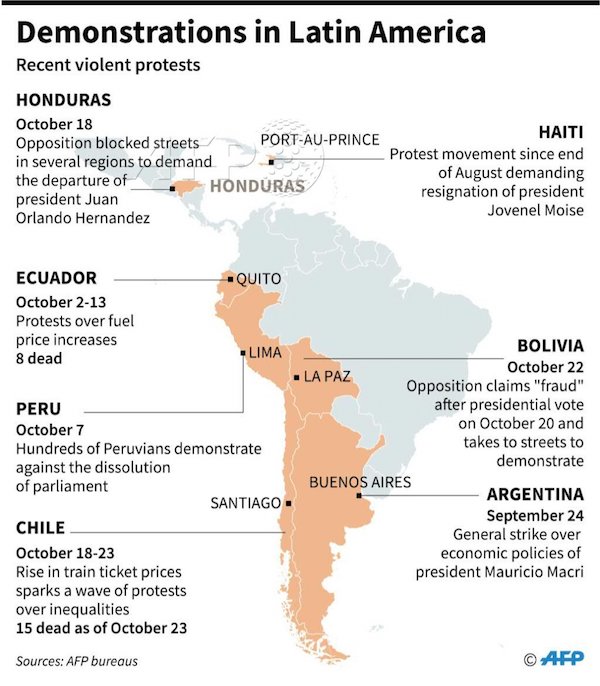

Russia in control.
• Kremlin Says US Betrayed Kurds In Syria (R.)
The Kremlin said on Wednesday that the United States had betrayed and abandoned the Syrian Kurds and advised the Kurds to withdraw from the Syrian border as per a deal between Moscow and Ankara or be mauled by the Turkish army. The comments by Kremlin spokesman Dmitry Peskov to Russian news agencies followed a deal agreed on Tuesday between Russia and Turkey that will see Syrian and Russian forces deploy to northeast Syria to remove Kurdish YPG fighters and their weapons from the border with Turkey.
Peskov, who was reported to be reacting to comments by U.S. President Donald Trump’s special envoy for Syria James Jeffrey, complained that it appeared that the United States was encouraging the Kurds to stay close to the Syrian border and fight the Turkish army. “The United States has been the Kurds’ closest ally in recent years. (But) in the end, it abandoned the Kurds and, in essence, betrayed them,” Peskov was cited as saying. “Now they (the Americans) prefer to leave the Kurds at the border (with Turkey) and almost force them to fight the Turks.” If the Kurds did not withdraw as per the deal between Moscow and Ankara, Peskov said that Syrian borders guards and Russian military police would have to withdraw, leaving the Kurds to be dealt with by the Turkish army.

WHen you read the article, it appears perhaps not the best way to report this.
• Amazon Rainforest ‘Close To Irreversible Tipping Point’ (G.)
Soaring deforestation coupled with the destructive policies of Brazil’s far-right president, Jair Bolsonaro, could push the Amazon rainforest dangerously to an irreversible “tipping point” within two years, a prominent economist has said. After this point the rainforest would stop producing enough rain to sustain itself and start slowly degrading into a drier savannah, releasing billions of tonnes of carbon into the atmosphere, which would exacerbate global heating and disrupt weather across South America. The warning came in a policy brief published this week by Monica de Bolle, a senior fellow at the Peterson Institute for International Economics in Washington DC.
The report sparked controversy among climate scientists. Some believe the tipping point is still 15 to 20 years away, while others say the warning accurately reflects the danger that Bolsonaro and global heating pose to the Amazon’s survival. “It’s a stock, so like any stock you run it down, run it down – then suddenly you don’t have any more of it,” said de Bolle, whose brief also recommended solutions to the current crisis. Bolsonaro has vowed to develop the Amazon, and his government plans to allow mining on protected indigenous reserves. Amazon farmers support his attacks on environmental protection agencies. His business-friendly environment minister, Ricardo Salles, has met loggers and wildcat miners, while deforestation and Amazon fires have soared since he assumed office in January.
The policy brief noted that Brazil’s space research institute, INPE, reported that deforestation in August was 222% higher than in August 2018. Maintaining the current rate of increase INPE reported between January and August this year would bring the Amazon “dangerously close to the estimated tipping point as soon as 2021 … beyond which the rainforest can no longer generate enough rain to sustain itself”, de Bolle wrote.

“Hell is empty and all the devils are here.”
William Shakespeare





